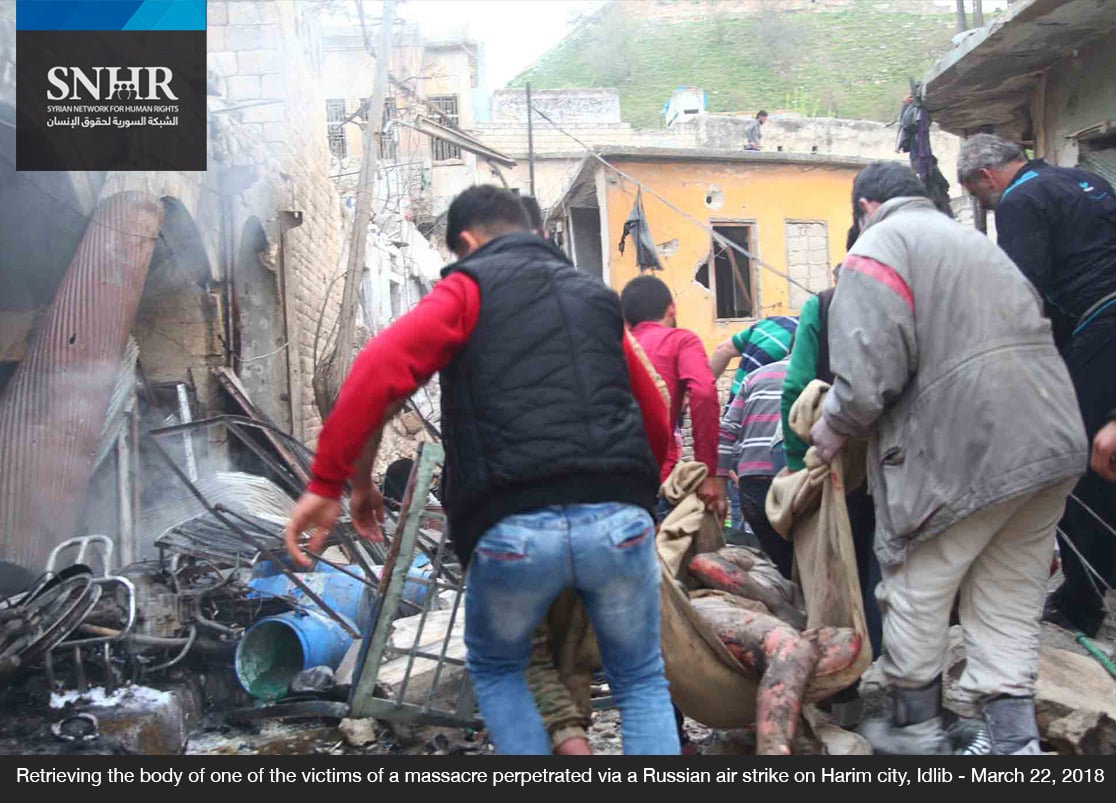A Strategy of Murder and Hubris

Nearly 29 months have passed since the Russian military intervention started in Syria in September 2015. Russian forces have perpetrated thousands of violations, many of which constitute war crimes, as Russian air forces carried out thousands of airstrikes on civilian areas and residential neighborhoods, using directed missiles to bomb vital civilian facilities, including medical facilities, schools, and markets. In addition, Russian forces have used cluster munitions to a larger extent than the Syrian regime, in addition to incendiary weapons and bunker-buster missiles in populated areas. As for chemical weapons, Russia has plainly failed to uphold its pledges to end chemical weapons’ use following the Syrian regime’s attacks in Eastern and Western Ghouta in August 2013, even after the direct Russian military intervention started, where we have, as of today, documented 48 attacks using chemical weapons since September 30, 2015. Russian forces, even, directly assisted the Syrian regime in two of these attacks at least by targeting major medical facilities in the targeted area and the roads leading to the area in order to hinder the aiding of the wounded.
The escalated violence by Russian forces has had the most impact with respect to forced displacement, where the residents of eastern Aleppo’s neighborhoods fled under Russian attacks in December 2016, while Russia sponsored an agreement that would see the evacuation of no less than 45,000 civilians from these neighborhoods towards the areas of the western suburbs of Aleppo, which was followed by another agreement in al Wa’er neighborhood in Homs city on March 13, 2017 that resulted in the evacuation of no less than 20,000 residents. Additionally, approximately 420,000 people have been forced to flee due to Russian airstrikes in eastern suburbs of Hama, eastern and southern suburbs of Idlib, and southern suburbs of Aleppo since September 2017, in addition to approximately 580,000 people who fled different areas in Deir Ez-Zour and Raqqa governorates.
In parallel with all of this, Russian forces provided an immoral cover to protect the crimes of the Syrian regime at the Security Council, and obstructed any resolution that would hold it accountable, where Russia used veto 11 times, including five times on the case of chemical weapons. Russia, also, has failed to commit to any bilateral and direct agreements they signed with factions from the armed opposition, and failed to sustain de-escalation agreements that were the results of Astana talks, as Russia never ceased its military offensives even in the areas included in the agreement as was seen in Idlib governorate in the last-third of 2017 and what is happening today in Eastern Ghouta. The Russian crimes never stopped even during Sochi conference in January 2018, which stripped Russia of whatever credibility it had left in the eyes of the Syrian people, as large portions consider Russia a direct enemy.


